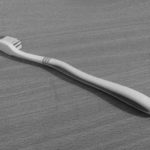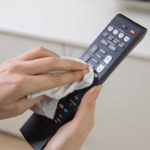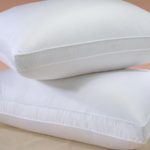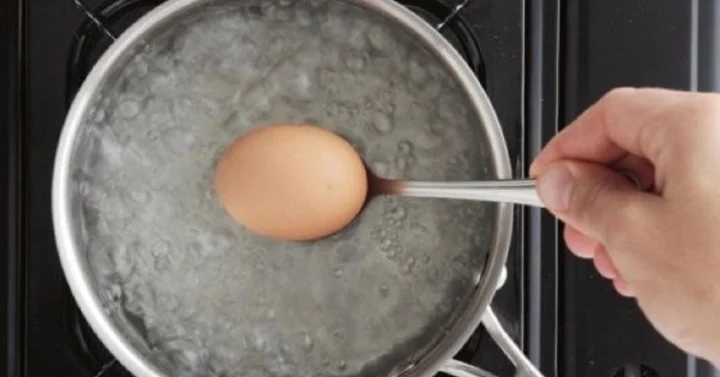
Adding eggs to boiling water will make the eggshells easily crack and the egg whites, yolks may spill out.
Boiled eggs with tea water
Boiling eggs with tea water is a very dangerous combination because eggs and tea are two incompatible foods. Tea leaves contain a large amount of tannic acid, which, when combined with the protein in eggs, forms a tannic acid protein compound that slows down the activity of peristalsis, prolongs the time of stool accumulation in the intestines. If you eat too much, you may face constipation, fatigue, and even poisoning.
In addition to the habit of boiling eggs with tea, eating eggs with tea is also not recommended.
Boiling eggs in the pot for too long
When boiling eggs, the main thing you need to pay attention to is that the boiling time should not exceed 15-20 minutes. Many housewives believe that eggs should be left in the pot for a long time to be fully cooked and to completely eliminate bacteria clinging to the eggshells.
But in fact, this is completely wrong because when bacteria are completely destroyed, iron and sulfur in the eggs will also combine with each other, thereby reducing the nutrients in the eggs and affecting your health.
When the eggs are overcooked, the inside of the yolks will have gray streaks, be smelly of sulfur, and the egg whites will be rubbery.
You should only put the eggs in the pot, add cold water, boil. Then take the pot off the heat, cover it, and leave it for 10 minutes for soft-boiled eggs, and for 15 minutes for medium-boiled eggs.
Adding water while boiling eggs
Many housewives, while boiling eggs, reduce the water, so they add water while boiling eggs, which makes the eggs prone to crack and break. However, the consequence is that the shells stick more tightly, making it harder to peel and, as a result, the bacteria in the water can easily penetrate into the eggs. This action causes the eggs to lose many nutrients, so it is best to add enough water to cover the eggs.
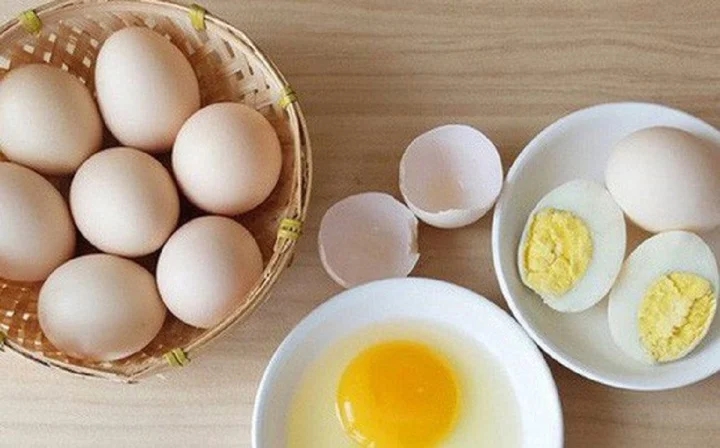
Eggs are among the top foods not to be left overnight.
Boiling eggs with boiling water
Adding eggs to boiling water will make the eggshells easily crack and the egg whites, yolks may spill out. Moreover, the cracked eggshell can allow the bacteria in the water to invade the inside of the egg, which is not good for consumption.
Soaking hot eggs in warm water
Warm water contains a lot of bacteria. When you soak eggs in warm water and peel them, the bacteria will penetrate inside and may alter the nutritional composition of the eggs.
Boiling eggs and leaving them overnight
Eggs are among the top foods not to be left overnight. According to Chinese nutrition expert, Zhang Tanyi: You should not leave eggs overnight because it can give rise to dangerous bacteria such as E.coli…. harmful to the digestive system, and can even cause diarrhea, fatigue, and in serious cases, poisoning.
The Centers for Disease Control and Prevention (CDC) lists eggs as the most susceptible to food poisoning. Eggs often contain Salmonella, a bacterium that can cause food poisoning. Eating soft-boiled eggs left overnight can lead to Salmonella infection, with symptoms such as diarrhea, vomiting, fever, convulsions… food poisoning or damage to the intestines.
Source: VTC.vn
8 Common Mistakes People Make with Cutting Boards
Are you using your cutting board correctly? Many Vietnamese households rely on cutting boards in their kitchen, but not everyone knows how to use them properly, especially when it comes to wooden cutting boards. Check out these 8 mistakes to avoid when using a cutting board to ensure both hygiene and safety for everyone in your family.
























